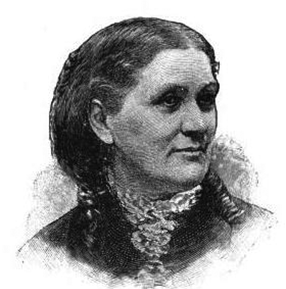The City Lights
Underneath the stars the houses are awake;
Upward comes no sound my silent watch to break.
Night has hid the street, with all its motley sights;
Miles around, afar, shine out the city lights:
Stars that softly glimmer in a lower sky,
Dearer than, the glories unexplored on high;
Home-stars, that, like eyes, are glistening through the dark,
With a human tremor wavers every spark.
Glittering lamps above and twinkling lamps below;
The remote, strange splendor, the familiar glow:
One Eye, looking downward from creation’s dome,
Sees in both, his children’s window-lights of home.
Who have dwellings there, in avenues of space?
Whose clear torches kindle through the vague sky-place?
Are they holding tapers, us, astray, to guide,
spirit-pioneers, who lately left our side?
Never drops an answer from those worlds unknown:
Yet no ray is shining for itself alone.
Hints of heaven gleam upward, through our earthly nights;
Tremulous with pathos are the city lights:—
Tremulous with pathos of a half-told tale:
Through therein hope flickers, burning low and pale,
It shall win completeness perfect as the sun:
Broken rays shall mingle, earth and heaven be one.
This poem is in the public domain. Published in Poem-a-Day on October 20, 2024, by the Academy of American Poets.
“The City Lights” is found in The Poetical Works of Lucy Larcom (Houghton, Mifflin and Company, 1884). Amid her letter correspondence with her friend the poet and editor John Greenleaf Whittier, Lucy Larcom meditated on James Russell Lowell’s “The Origin of Didactic Poetry,” published in The Atlantic, as well as her own poetics and wrote on October 30, 1857: “I believe in but one Beauty, the twin of Truth, and the subtle essence of all that is sweet and deep and noble, in letters, morals, religion, and everyday life. I think that poetry would lose its very soul, if it ceased to breathe out moral lessons; though of course, no one wants it to be ‘preachy.’ But then, if there must be sermons, I would rather hear a poetical than a prosy one. Is not the real objection against sermons in general? If the poetry of nature and nobly-uttered human lives were left to do their work, if people would listen to them, what need of any other preaching?”

